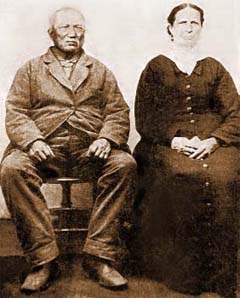|
Intermix.org.uk is a website for the benefit
of mixed-race families, individuals and anyone who feels they have a multiracial
identity and want to join us. Our mission is to offer a view of the mixed-race experience, highlighting icons, film, books, poetry, parenting techniques, celebrities, real lives and much more. Our online forums are a great place to meet others, ask questions, voice your opinions and keep in touch. Sign up for our monthly newsletter and delve into our pages. Want to join in? Become an Intermix member to take part: |
Study Of Mixed-Race Native Americans
 Professor receives grant to aid research.
Professor receives grant to aid research.
An associate history professor at Carnegie Mellon University, Pittsburgh, USA has been awarded a $40,000 grant from the National Endowment of the Humanities (NEH) to research a book on mixed-race identity.
Professor Scott Sandage will explore the cultural history of a little-known Native American reservation in southeast Nebraska in the 19th and 20th centuries.
The research will come together in the form of a book with the uncomfortable title Half-Breed Creek: A Tall Tale of Race on the Frontier and is an extension of Professor Sandage's research in the context of the Native American reservation.S
'[The reservation] became a place that was used to decide whether your biology or your culture defines your race,' says Professor Sandage. 'The issue is still alive today; the year 2000 was the first time you could report yourself as mixed-race to the United States census bureau.'
One of the first inhabitants of the reservation was Antoine Barada, the son of a French trapper and an Omaha Indian woman. Antoine became a legendary figure in Nebraska folklore, but Professor Sandage is focusing on questions that arose about the Barada family’s racial identity. In the late 1800s, a court case involving the family considered whether biology or culture defines a person’s race. The U.S. Supreme Court decided in 1904 that the Baradas were culturally white, despite their Indian ancestry. Ironically, poverty kept them sharecropping on the reservation for another 35 years.
The grant will finance visits to archives and other historical sites that relate to the research.
The derogatory term half-breed was often used in the US to describe people who were mixed-race with Native Indian and American heritage.
Despite the choice of title we look forward to reading about Professor Sandage's findings.
Source:TheTartan.org
